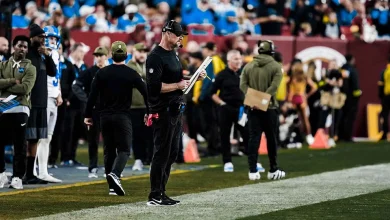Mexico World Cup group: 2026 opponents and schedule for El Tri

Where the USMNT stand as World Cup inches closer
Pro Soccer Wire’s Seth Vertelney breaks down the current state of the USMNT after a solid finish to an up and down 2025.
Sports Pulse
As co-hosts alongside Canada and the United States, Mexico was an automatic qualifier for the 2026 World Cup.
This will be the ninth consecutive World Cup appearance for El Tri, which failed to get out of the group stage at the 2022 World Cup had reached the Round of 16 in each of the seven World Cups prior.
Mexico was drawn into a group with South Africa, South Korea and the UEFA Playoff D winner – Denmark, Ireland, Czech Republic or North Macedonia. El Tri will face South Africa in the tournament’s opening match on June 11, 16 years after the two sides played the first game in the 2010 World Cup.
Managed by Javier Aguirre, Mexico has a squad captained by defensive midfielder Edson Álvarez and features Raúl Jiménez as its top goal-scoring threat.
As a World Cup co-host, Mexico will enjoy home-pitch advantage throughout the group stage, with two matches played at the iconic Estadio Azteca in Mexico City.
Mexico World Cup group 2026
2026 World Cup Group A
- Mexico
- South Africa
- South Korea
- UEFA Playoff D winner– Denmark, Ireland, Czech Republic or North Macedonia.
Mexico World Cup schedule
- June 11: Mexico vs. South Africa – Estadio Azteca, Mexico City
- June 18: Mexico vs. South Korea – Estadio Akron, Zapopan
- June 24: Mexico vs. UEFA Playoff D winner – Estadio Azteca, Mexico City
2026 World Cup schedule
- Group stage: June 11-June 27
- Round of 32: June 28-July 3
- Round of 16: July 4-July 7
- Quarterfinals: July 9-July 11
- Semifinals: July 14-15 – AT&T Stadium (Arlington, Texas) and Mecedes-Benz Stadium (Atlanta)
- Third-place match: July 18 – Hard Rock Stadium, Miami Gardens
- World Cup final: July 19 – MetLife Stadium, East Rutherford, New Jersey





